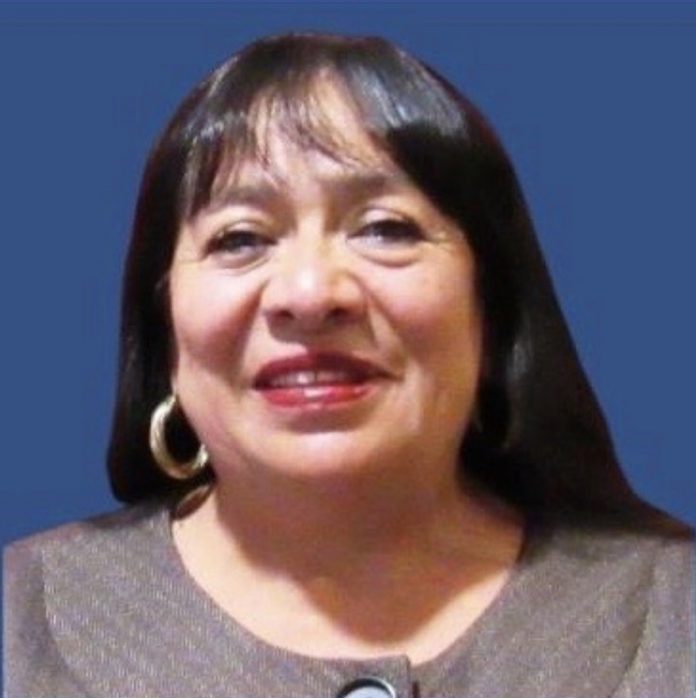Estela De Los Rios laced statements on her El Cajon campaign for city council with insight on how the census overlooks a recent surge in refugees by identifying residents by race, why science should be incorporated into public policy to slow the spread of the COVID-19 pandemic and how she would build communication between police and the community.
She said it is her “responsibility to be the leader we need in El Cajon, to represent low-income but hardworking families” now that demographics have changed. She compared the census she worked on in 2010 to the most recent count, said it does not reflect the diversity she sees in her city.
“In 2010, I’d say it was 26% Latino; ten years later we’re up to 40% Latino and I’d say about 40% Middle Eastern; there are lots of first-generation immigrants and an influx of refugees in the past three to five years but they’re just listed as ‘white’ on the census so it doesn’t show up that way,” De Los Rios said.
As Executive Director for non-profit CSA San Diego County, De Los Rios promotes fair housing through social justice and public service programs.
If elected, two of her biggest priorities would be to generate more affordable housing by redeveloping blighted areas and implementing rent control for seniors, especially those living in mobile home parks.
She said the temporary moratorium on rent due to the COVID-19 pandemic is ultimately putting people more in debt and is not a long term solution.
“There’s no answer as to when it’s going to be completely gone but for right now it’s essential we control the spread and invest in community health,” De Los Rios said.
To do so, she would first implement tracking programs at area medical treatment centers and hospitals so administrators can “track the data we need to improve communication and reduce the spread by pinpointing where cases are coming from”.
De Los Rios would also like the government to fund better air filtration systems and make masks mandatory because “masks reduce the spread of the virus. Follow the Center for Disease Control and the Environmental Protection Agency and look at the science: I’m not protecting myself, I’m protecting you”.
Government leaders would be wise to reinvest CARES dollars— assistance for state and local governments funded by the federal government through the coronavirus relief fund— back into small businesses, she said. She would also like to see some of the funding combined with Community Block Development Grants to provide shelter for homeless residents.
“I’ve been part of the homeless task force and homelessness it is a regional, state and national issue. Some of those funds can go to the homeless population,” De Los Rios said.
She suggested local leaders look to models like New York-based Safe Haven, a system that offers shelter without requiring sobriety or curfew restrictions and provides counseling services while pushing individuals to seek permanent housing.
A former Homeless Task Force volunteer, she would prefer to see less time spent on administrative work like homeless counts and more time on a holistic approach dedicated to “getting these people housed, treated and on their feet off the streets, prepared for a job”.
“The funding is out there to turn some structures into temporary shelters before getting people into permanent housing. Some could even go into senior living. I’ve seen some homeless people who are old enough to be my grandmother and it breaks my heart to see the sadness and despair in their eyes. Some could apply for disability, Social Security, resources they probably know about but don’t have access to,” De Los Rios said.
“We have a long way to go because some need more help than others, some high-level needs like dementia or something else requires critical mental care,” De Los Rios said.
She said mental health should be a priority everywhere, from working with the homeless to law enforcement and would like to send members of the Psychiatric Emergency Response team along with police on local calls.
De Los Rios cited a 2016 case in which police shot 38-year old Ugandan refugee Alfred Olango after his sister called for emergency psychiatric help and said “after the fact, it was revealed he had mental health issues”.
“I believe wholeheartedly that police are here to protect and serve.
That was the initial mission for law enforcement but right now there is a loss of trust in the police department and we need to regain that trust,” De Los Rios said.
To do so, she would implement a citizens review board as well as reinstate a citizen police advisory board like the one she served on under now-retired El Cajon Police chief Jeff Davis to promote communication between police and community.














